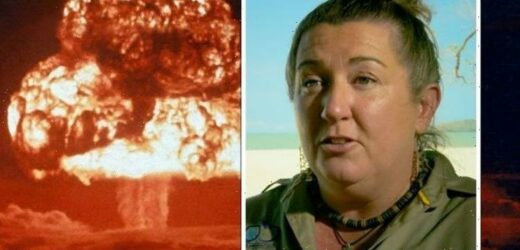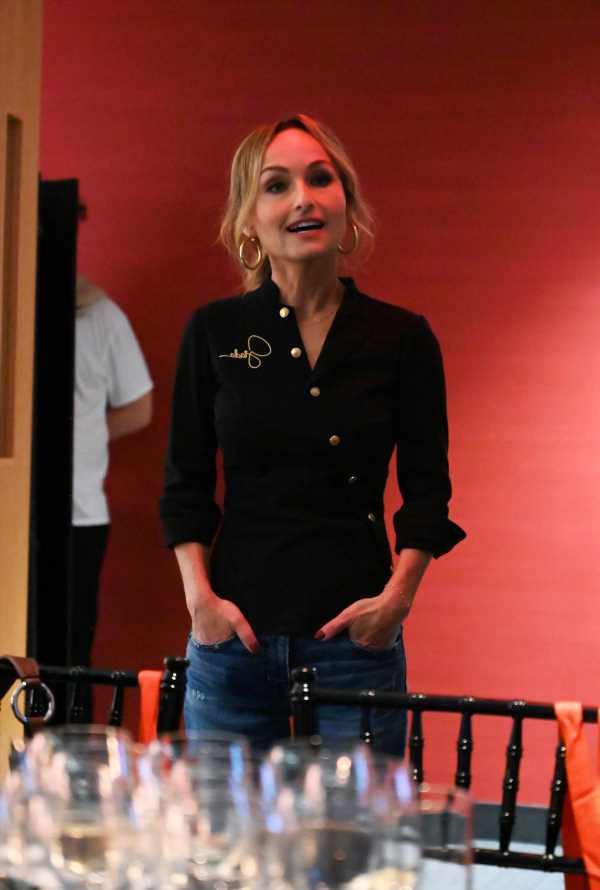Prince William: Lorraine and Russell Myers praise Earthshot prize
We use your sign-up to provide content in ways you’ve consented to and to improve our understanding of you. This may include adverts from us and 3rd parties based on our understanding. You can unsubscribe at any time. More info
A project to regrow Earth’s decimated coral reefs won one of Prince William’s inaugural Earthshot Prize awards on Sunday. Sam Teicher and Gator Halpern received one of the five £1 million prizes for their Coral Vita project based in the Bahamas. The pair scooped the gong at a glitzy ceremony held at London’s Alexandra Palace, which was attended by a string of celebrities.
William launched the prize last year and was supported at the event by his wife, Kate, the Duchess of Cambridge.
The pair watched on as the five Earthshot winners were recognised for their contributions to tackling climate change and other environmental issues.
The obliteration of the world’s coral reefs – and their remarkable recovery – has been chronicled for a new BBC Four documentary series.
‘Restoring the Earth: The Age of Nature’ looks at how environmental disasters caused by humans can be turned around.
The first in the series of films, ‘Awakenings’, catches up with Dr Zoe Richards, a coral taxonomist from Australia’s Curtin University.
JUST IN: Gas boiler ban: Millions of Britons face £9,000 bill as green switch date set to be moved


The expert and her team were the first to conduct marine surveys of the coral reefs of former nuclear test site Bikini Atoll in the Marshall Islands.
Dr Richards said: “It’s phenomenal to think that in just 50 years coral cover can come back to as close as you’re going to get on any reef around the world.
“To think that even the crater itself can be recolonised by corals and other marine life, it just shows you the potential that nature has for recovery if it’s left alone.”
The US dropped a series of nuclear bombs on the remote area of the Pacific Ocean between 1946 and 1958.
Dr Richards described how she expected to be “confronted with a moonscape” as she surveyed the area’s corals for the first time after their years of “nuclear devastation”.

However, she said she was “shocked” and “couldn’t believe” her eyes as she dived down to Bikini Atoll’s reefs.
She said: “There were corals, there were fish, there were anemones, there was everything you would expect to see on a normal, healthy reef ecosystem.
“If you didn’t know about the history, you would think that nothing had ever happened at this location.”
The BBC Four series is narrated by actress Anna Friel, who explained the extent of the destruction.
DON’T MISS:
Putin outsmarted after offering to ‘rescue’ UK from gas crisis: ‘We don’t need it!’ [LATEST]
Space quantum leap as scientists focus on ‘Hycean’ worlds: ‘Could find life in two years’ [INSIGHT]
Space breakthrough as ‘recent volcanism seen on Venus’ casts planet’s death into doubt [ANALYSIS]

Speaking in the documentary, she said: “In 1946 a nuclear bomb was detonated on the Pacific island of Bikini Atoll.
“Over the next 12 years, 22 more nuclear tests like this were carried out.
“One, named Castle Bravo, was 1,000 times more powerful than Hiroshima.
“Three islands and their surrounding coral reefs were obliterated. Nature was not the priority.”
While the coral reefs featured in the documentary regrew naturally, Coral Vita’s concept sees coral regrown on land and then replanted in oceans.

The process is 50 times faster than traditional methods, according to the Earthshot Prize.
Sam and Gator, the brains behind the project, envision that countries could support a network of similar coral farms in the future.
In a statement, the Earthshot Prize said: “Ocean warming and acidification are set to destroy over 90 percent of reefs by 2050, a death sentence for the quarter of marine life who need them to survive.
“It will be a disaster, too, for the billion human lives dependent on the benefits reefs provide.”
‘Restoring the Earth: The Age of Nature’ is available on BBC iPlayer.
Source: Read Full Article


